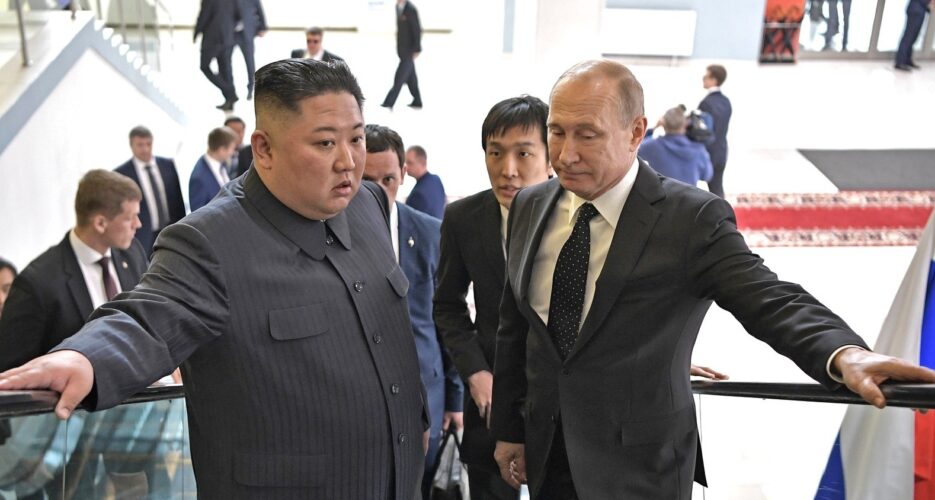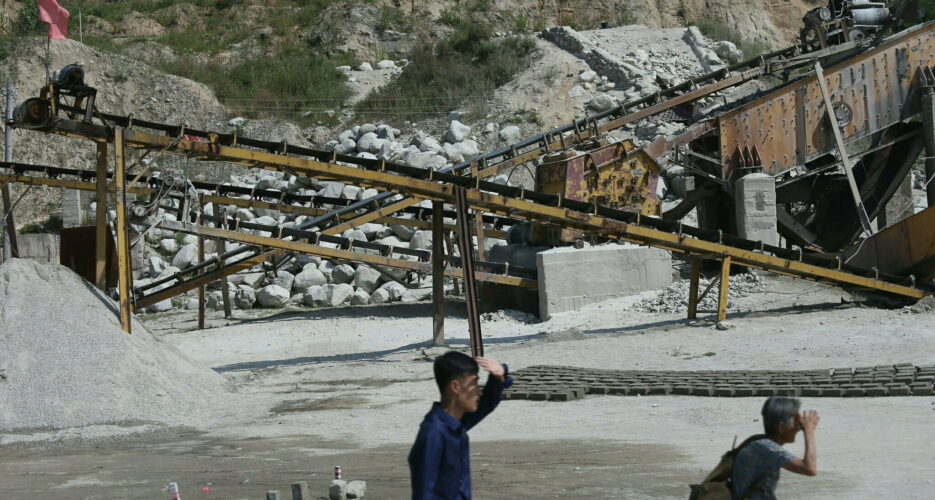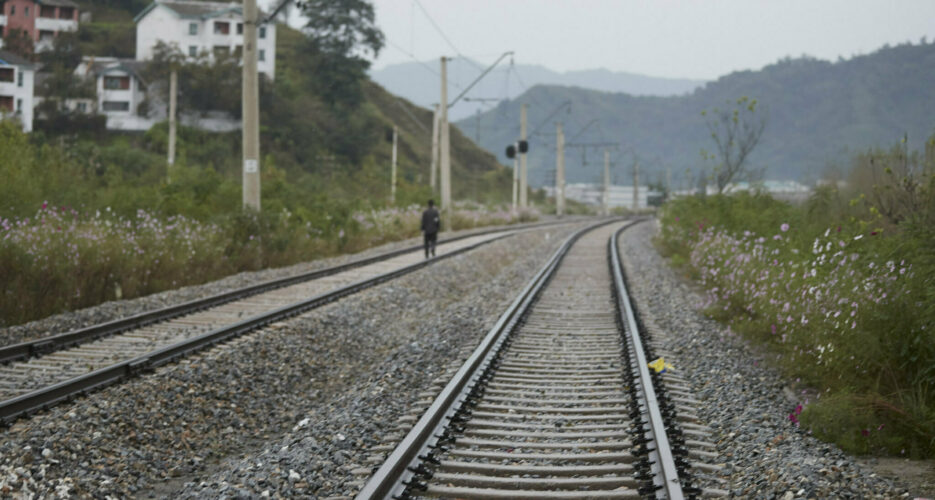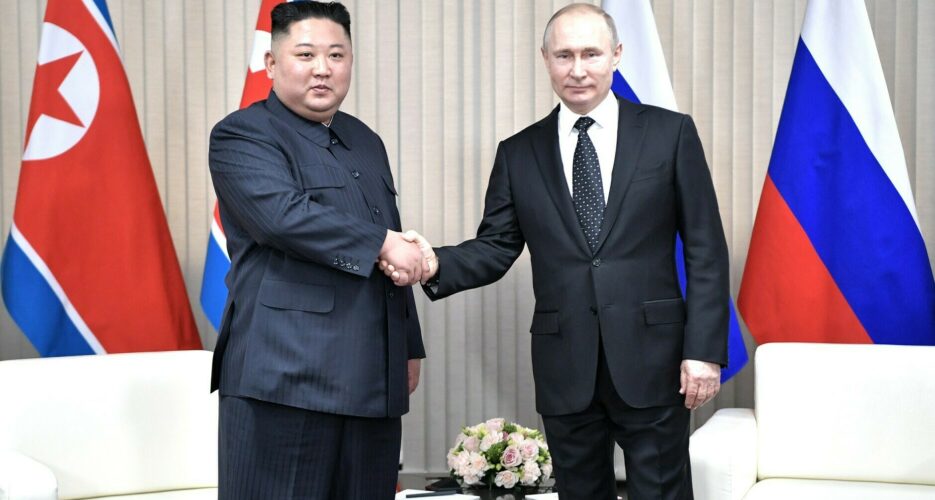Russia-North Korea relations hit a high point and then fell into a deadlock
Russian companies won't significantly invest because North Korea can't give them what they don't already have
Andrei Lankov November 12, 2020

SHARE
Image: Kremlin
Less than two years ago, North Korea’s relationship with Russia reached a perceived “high point,” with Kim Jong Un meeting Russian President Vladimir Putin in Vladivostok. But right now, relations are stalled — and that doesn’t look like it’ll change anytime soon.
For two or three decades now, there has been constant talk of Russia building railways spanning from South Korea to Europe, as well as gaining access to North Korea’s rich deposits of rare earth minerals. But cooperation between the two countries never takes off because, frankly speaking, North Korea can’t offer Russia much of anything that Moscow doesn’t already have.
Still, there may come a day when Russia reassesses the importance of the Korean Peninsula – and if this happens, these projects could become a reality.
 A North Korean mining area | Image: NK News
A North Korean mining area | Image: NK NewsRUSSIAN DREAMS
In 2014, many international media organizations began to project that a major geopolitical shift was on the horizon. Russia, which had remained almost invisible in North Korea-related affairs since the early 1990s, was making a comeback. Maybe Russia would soon even replace China as North Korea’s major trading partner, sponsor and protector.
In general, 2014 and early 2015 was a time of frantic diplomatic activity, grandiose statements and big promises. Russian delegations were visiting Pyongyang at a rate not seen since the Soviet era.
A 2014 statement by Alexander Galushka, the Russian minister for the Development of the Far East, sparked the most attention.
He claimed that, by 2020, the amount of trade between Russia and North Korea would reach $1 billion. For some 15 years before then, the two countries’ trade had stagnated at $0.1 billion and was showing no signs of growth.
Admittedly, official statistics should be taken with a large grain of salt. Since the late 1990s, many Russian companies have preferred to trade with North Korea indirectly through China – comprising an estimated 70% to 80% of Russia’s total exports to the DPRK.
But even taking into account these unreported transactions, the stated goal of increasing trade by tenfold was highly ambitious.
 Railroad tracks in Wonsan, North Korea | Image: NK News
Railroad tracks in Wonsan, North Korea | Image: NK NewsRAILWAY FROM KOREA TO EUROPE
Reports emerged of large-scale Russian investment. For example, the Mostovik Group, a large Russian construction company, was supposedly about to launch its “Pobeda” (victory) project. The Mostavik Group would acquire mining rights to North Korea’s mineral resources, especially the massive deposits of rare earth minerals believed to be in the country. So far, it looks like that project was short-lived and fizzled out.
In exchange, the company was going to heavily invest in the redevelopment of North Korea’s outdated railway system – it was reported that this would amount to billions, with some even claiming that investment would reach $25 billion.
Anticipation grew for natural gas pipelines and new railway links that would connect Busan in South Korea all the way to Hamburg in Germany. This would reduce the time it took to move a container between these two port cities from the current 25 days to 10 days or less, at the same or even a cheaper cost.
Yet, despite the optimism, the official volume of trade between Russia and North Korea actually went down, sinking to a paltry $48 million in 2019. While this figure doesn’t reflect smuggling and trade via third countries, all available evidence suggests that unofficial trade also more or less declined along with official trade.
The railway link project met an unfortunate fate. There was another North-South railway linking ceremony held in Oct. 2018 during yet another wave of unfounded optimism about inter-Korean “reconciliation,” and a Russian railways delegation predictably attended. Few cared to remember that the first ceremony had been held all the way back in 2002. Predictably, no trains carrying real freight have traveled across the border between the two Koreas following the pompous celebrations in 2018.
 North Korean leader Kim Jong Un with Russian President Vladimir Putin | Image: Kremlin
North Korean leader Kim Jong Un with Russian President Vladimir Putin | Image: KremlinA MARGINAL PLAYER
The Russian and North Korean economies are simply not compatible. Russia does not need North Korean coal and minerals when it can get them from Siberia. It does not need North Korean seafood, even if it is selling well in China. The only thing Russia has any interest in is the North Korean labor force, sent to Russia to work at logging camps, construction sites and the like.
Russia won’t build the railways and pipelines because they are prohibitively risky and expensive. Russian investors would suffer a significant blow if these projects were halted as a result of inter-Korean relations souring again – which is highly likely.
Russia simply expresses theoretical commitment, but is waiting for better times to make its real first move. This could be decades.
History tells us that economic activity between Russia/the Soviet Union and North Korea only happens when the former is willing to subsidize Russian companies. North Korea is, frankly, unable to genuinely attract Russian investment.
However, the Russian government will only make such subsidies when they believe, rightly or wrongly, that it has important strategic interests on the Korean Peninsula.
These days, while Russia would like to increase its influence in Korean affairs, North East Asia is a secondary, or even tertiary concern.
Perhaps the Russian government and companies seriously underestimated the difficulties of dealing with North Korea in 2014 and 2015. These difficulties became apparent in no time, and they made a wise decision by running away before they were burdened with large losses.
2017’s U.N. sanctions delivered another blow to Russian ambitions. But, in reality, the “Russian boom” in North Korea had fizzled out well before the new sanctions were in place.
This doesn’t mean Russia is destined to remain an outsider in North Korea affairs forever. If the country does decide to reenter the political games surrounding the DPRK, some of the projects discussed in 2014 and 2015 may even become a reality.
Nevertheless, at the moment, Russia remains a rather marginal player when it comes to North Korea.
Edited by James Fretwell
No comments:
Post a Comment